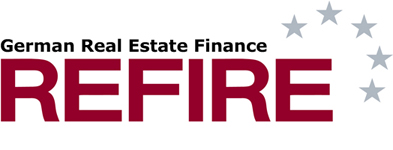
Commerzbank AG
Commerzbank Zentrale
The market for big mutual funds is increasingly concentrated on the biggest players, such as Deka, Union Investment and Commerzbank, whose biggest funds now command about half of all fund inflows. These funds can benefit from stability and lower volatility through a high degree of diversification.
Germany's open-ended real estate funds have been riding a wave of liquidity to clean up and diversify their holdings, largely to very good effect, according to the latest annual ratings issued by Berlin-based rating agency Scope.
Last year the open-ended funds invested €9.2bn in real estate assets, almost 50% more than the previous year. The average investment per unit bought was 25% higher at €129m for commercial property, with the funds also investing in residential assets in large volume for the first time.
In 2017 the 19 open-ended real estate funds examined by Scope shifted their regional focus to concentrate more on Germany itself, displacing the USA as favourite investment destination. Germany claimed 25% of all new investment. The Scope analysts attribute the shift primarily to differences in the respective dollar and euro interest rates, which they say has led to much higher hedging costs.
The UK comes second as preferred destination, with 18% of investment, partly as a result of the ongoing political uncertainty. As the analysts say, "Particularly on the London investment market – due largely to Brexit – there have been significant price corrections, which some of the funds have taken advantage of. Despite Brexit, London remains one of the most transparent and liquid property markets in the world." The US was third, with 16% of the funds' investment volume.
Within asset categories, the analysts also identified a shift to hotels and away from retail, as the funds increasingly opt to include the favourable risk-to-yield profile of hotels to pep up their total returns. "In 2017 the funds invested about €1.2bn in hotels, or about 13% of their total acquisition volume. By comparison, this share was only 3% as recently as 2014", say the analysts. Increasing uncertainty as to the impact of online commerce has negatively affected the appeal of shopping centres and retail assets, they say.
Overall the assets under management by the open-ended funds increased in 2017 by €5.5bn, with a further net inflow of €1.7bn in the first quarter of this year. With now €91.2bn of AUM, the open-ended funds sector has now surpassed its high water mark of 2009, before a wave of liquidations saw eighteen funds with total assets of €26bn disappear from the market. Following the introduction of new regulations in 2015, these losses have now been completely recouped.
Confidence has been so thoroughly restored that one in three of the 19 funds surveyed by Scope plans the launch of a new open-ended mutual property fund in the coming years. Indeed, across the board, nearly every fund received a "sehr gut" rating, of between 'a' and 'aa', with even the perennial wooden spoon candidate, Deutsche Bank's grundbesitz global boosting its rating from 'bbb-' to 'bbb+'. Points were docked by the Scope analysts for mainly the ongoing low occupancy rates of 93.2% on average, and the higher costs of hedging for US dollar investments.
The funds on average earned 2.8% over the year, 50 basis points more than a year ago. With the return on two year government bonds at -0.5%, the gap between the funds' return and the yield on bonds has increased since last year, with Scope analyst Sonja Knorr commenting, "We don't see any signinficant rate rise over the next twelve months that would fundamentally change this relationship."
Frau Knorr does warn, however, that not all funds will have it easy by launching new products. Even with good products, it is increasingly difficult without having ones own distribution over a broadly-based banking network. Frau Knorr cites the residential fund launched by Union Investment in 2017 with the full power of the co-operative banking network behind it, which helped it raise €600m in equity capital in a short period. Others without the same network would have taken years to raise even €100m.
The market for big mutual funds is increasingly concentrated on the biggest players, such as Deka, Union Investment and Commerzbank, whose biggest funds now command about half of all fund inflows. These funds can benefit from stability and lower volatility through a high degree of diversification. The smaller funds, with global diversity, will still struggle with the dollar/euro interest rate difference, but are somewhat protected by the one-year notice period to withdraw funds, which acts as a buffer against too much volatility.
